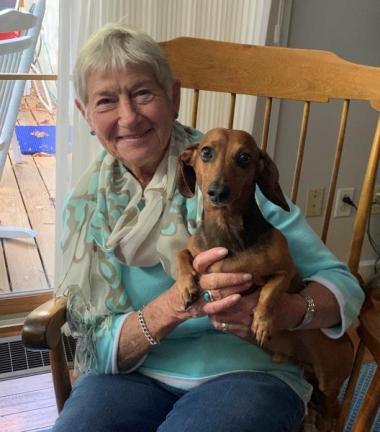
I mean, the best thing about becoming a judge, especially a juvenile judge, was I always had, and I still have, a sense of having made a contribution to society and making a difference in people's lives. That was the most—I mean it was impossibly hard. The stories that I heard about children being abused, being sexually abused, being physically abused, seeing kids in front of you having done horrendous things and looking into them and realizing they have no shot in life. They didn’t understand right from wrong. Yeah, it was, it was a very powerful job. It was hard.
Martha Grace was born in 1940 and raised in Providence, RI attending primary, secondary, and eventually collegiate level schooling in Providence as well. Soon after graduation, she decided to move to Worcester, MA with her husband because of his profession at the time. Shortly after the move, she had two children and was looking forward to continuing her education. After having her first child, and being turned down once already because of their fear of her getting pregnant, she attended Clark University and studied history. In 1969 she wanted to attend veterinary school but was dismissed as her status as a wife and a mother, along with her age, because it was believed this would not allow her to be a dedicated full-time student. These history classes pushed her to go to law school making the commute to Boston daily for this education. After she graduated from law school, Martha’s first job was teaching as a professor at Assumption College. She had the opportunity to teach various ethics and law courses at the time. After she decided to leave Assumption College, Martha became even more active in the bar association, eventually receiving the title as Clerk Magistrate in the town of Spencer, MA and eventually became Chief Justice of the Juvenile Court of the State of Massachusetts. In this interview Grace discussed balancing her career and life as a mother. She also brought insight as to what it was like to pursue a job and education as a woman and mother during the 1960’s onward and reflects on how things have changed. Martha tells her story as a strong woman who does not give up on her goals, hopes and dreams, based on circumstances in her life that may not support that desire. She got married, had two kids, went to law school, vet school and did all of this in the midst of all of this she was pursuing her desires to further her education.
